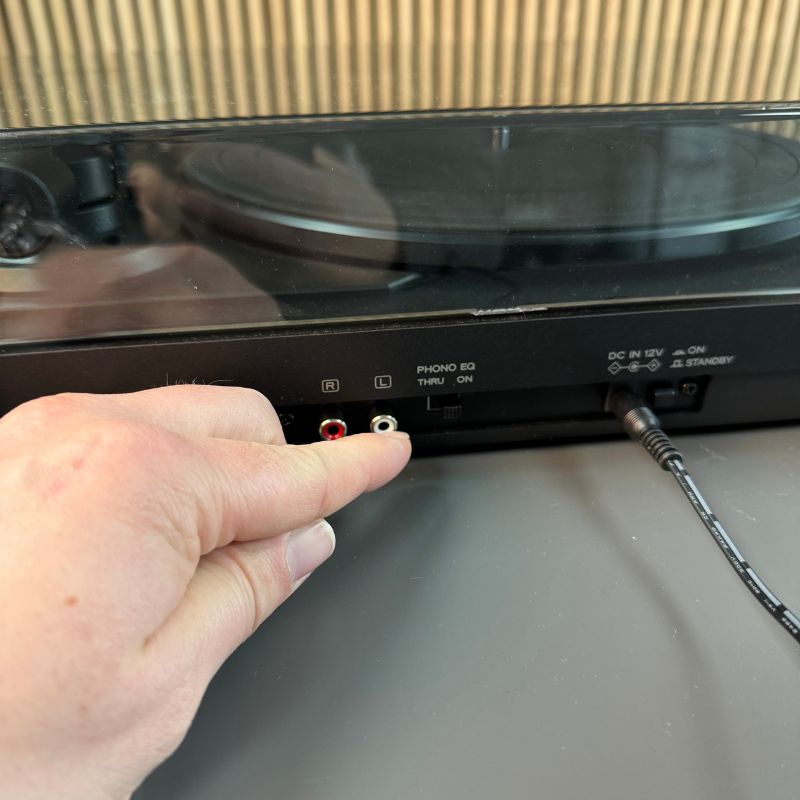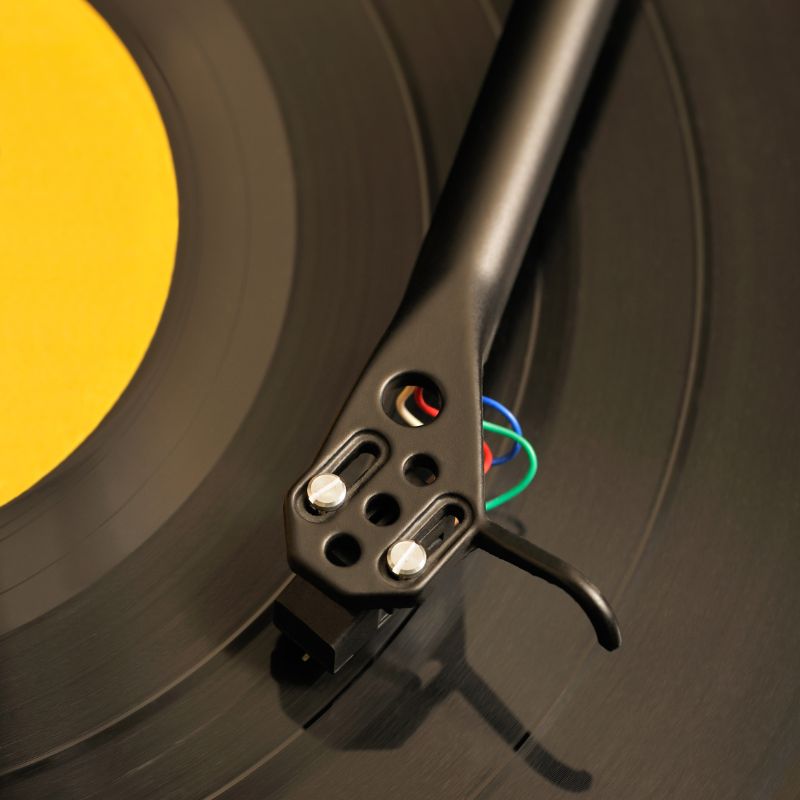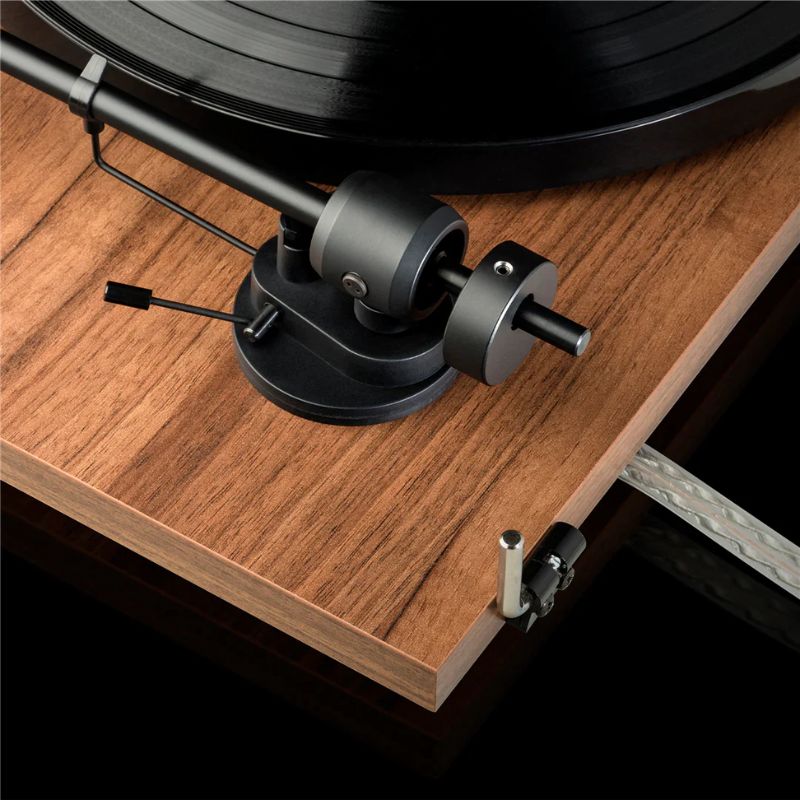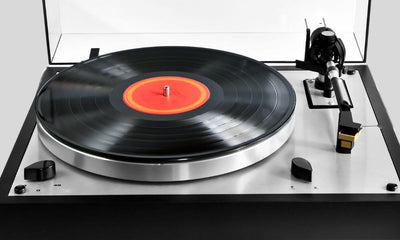So you've excitedly set up your new turntable, placed your favourite record on in anticipation of some vinyl enjoyment, but instead of blasting into life your turntable starts whispering instead of singing?
Well, don't fret because in this article we're going to explore the possible reasons behind your turntable's shyness and how to coax it back into its usual, melodious self.
Quick Troubleshooting Checklist:
- ✅ Pre-amplifier is switched on or external pre-amp is correctly connected.
- ✅ Stylus is clean & undamaged.
- ✅ Cartridge is aligned & securely attached.
- ✅ Tonearm is balanced with correct tracking force.
- ✅ Amplifier is working properly.
- ✅ Speakers are connected & set to the right input (if active).
Understanding Your Turntable
Before we dive into some troubleshooting, it's essential to understand the basics of how a turntable works.
There are several components to a turntable, each playing a crucial role in the sound production process.
These include the stylus (or needle), the cartridge, the tonearm, and the platter.
If any of these components aren't performing as they should, it could result in a quieter sound output.
Investigating the Potential Culprits
Now, let's put on our detective hats and investigate the potential culprits behind your turntable's quiet demeanour.

1. Check the Turntable Pre-Amplifier Switch
One of the most common problems with record players playing very quietly is simply that the built-in preamplifier is switched off.
Many modern turntables come with a built-in pre-amplifier that amplifies the weak signal produced by the stylus to a level that your speakers can handle.
If this is turned off, your sound will be barely audible.
To check, simply look for a switch labeled 'Phono/Line' and ensure it's set to 'Line' or 'on'.
If your turntable doesn’t have a built-in preamp, you’ll need to connect an external one, otherwise your speakers will only receive a very faint signal.
Most of the turntables we sell have a built-in pre-amp, and most are switchable
If you have an older or higher-end turntable without a pre-amplifier built in then make sure you have a separate pre-amplifier otherwise the turntable won't work correctly.
Read More: Do I Need A Pre-Amp For My Turntable?

2. Inspect Your Stylus for Wear and Damage
The stylus, or needle, is the part of the turntable that makes direct contact with your vinyl records.
If the stylus is worn out or damaged, it might not be able to pick up the grooves on the record properly, resulting in a quieter sound.
A quick visual inspection should tell you if the stylus is in good shape. If it looks worn or damaged, it might be time for a replacement.
It's also worth checking that the stylus is correctly fitted, we've had a few instances where the ATN3600L isn't clipped in properly, it looks fitted, but it's not fitted correctly so therefore won't pick up and play your music.
Additionally, the stylus might simply be dirty. Dust and debris can accumulate on the stylus over time, affecting its performance.
A gentle cleaning with a stylus brush and some stylus cleaning fluid should do the trick.
Make sure to use a proper stylus brush (avoid cotton swabs or your fingers as they can easily damage the delicate stylus) and apply cleaning fluid if needed. Always brush gently from back to front—never side to side—to avoid bending the stylus.”
Read More: How to Clean Your Turntable Stylus
3. Check Cartridge Alignment & Connections
The cartridge is where the magic happens. It houses the stylus and converts the vibrations from the record grooves into electrical signals. If the cartridge is malfunctioning, it could be causing your turntable to sound quieter than usual.
Check to see if the cartridge is properly aligned and securely attached to the tonearm.
If it's loose or misaligned, it could be affecting the sound output.

4. Balance The Tonearm & Set the Correct Tracking Force
The tonearm is responsible for holding the cartridge and stylus in place as they traverse the record.
If the tonearm is improperly balanced or the tracking force is set too low, it could result in a quieter sound.
You'll also find that the record sound terrible.
Check the balance of your tonearm and adjust it if necessary.
Also, make sure the tracking force is set to the correct value for your cartridge. If you're unsure about how to do this, refer to the manufacturer's instructions or consult with a turntable expert.
It's important that your tonearm is correctly balanced and set up otherwise you'll risk damaging your vinyl records as well as your stylus wearing out.
Checking Your Audio Setup
Now that we've covered the potential issues with the turntable itself, let's consider your audio setup.
After all, a turntable is just one part of the record player equation when it comes to playing vinyl records.
Amplifier Antics
Your amplifier plays a crucial role in boosting the sound from your turntable.
If your amplifier isn't working properly, it could result in a quieter sound.
Check to see if the amplifier is properly connected and functioning as it should.
If you're using a preamplifier, make sure it's compatible with your turntable and properly set up.
Try playing music from a different source such as Bluetooth or a wired device such as a CD player or phone. If the music is still quiet then your amplifier / speakers / cables are at fault. If however it plays fine then you've narrowed the issue down to the turntable itself.
Speaker Silliness
Finally, let's not forget about the speakers.
If your speakers aren't working properly, they could be the reason why your turntable sounds so quiet.
Check to see if the speakers are properly connected and functioning as they should.
Active speakers have built-in amplifiers, so they need to be plugged in and set to the correct input. Meanwhile, passive speakers require an external amplifier.
If you're using passive speakers, ensure your amplifier is properly configured and powerful enough to drive them. Even a small mismatch between your amp's output and your speakers can cause low volume issues.
Final Thoughts
So, there you have it, a number of things you can check if your turntable isn't as loud as you'd expect.
A quiet turntable can be a bit of a mystery, but with a bit of detective work, you can usually find the culprit.
Whether it's a worn stylus, a misaligned cartridge, a poorly balanced tonearm, a malfunctioning amplifier, or a set of underperforming speakers, there's usually a solution to get your turntable back to its melodious best.
Hopefully it's just a case of the pre-amplifier being switched off!
Remember, a turntable is a delicate piece of equipment that requires regular care and maintenance. So, keep it clean, keep it well-adjusted, and keep it singing. After all, a happy turntable is a loud turntable!





